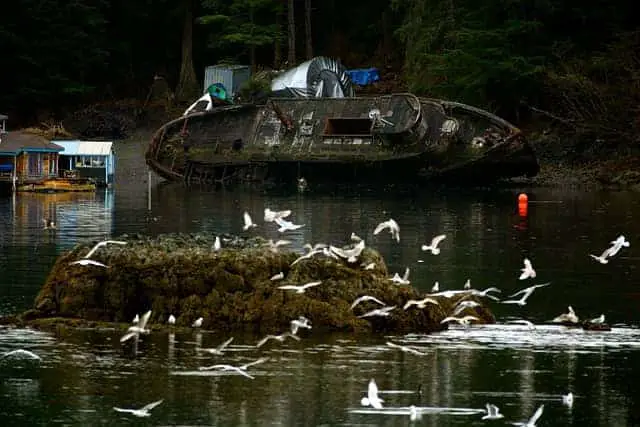How can oil spills affect humans and the environment? This article enumerates four major oil spill effects. Read on to find out.
Oil spills can have devastating effects on the environment, including wildlife, plants, and waterways. An oil spill occurs when crude oil or refined petroleum leaks into the ocean or other bodies of water, either from a natural disaster, such as a hurricane, or human error, such as an oil tanker accident.
The effects of an oil spill can last for years, or even decades, and can have a lasting impact on the local ecosystem. The effects of an oil spill can linger for many years, affecting ecosystems it can reach.

4 Major Oil Spill Effects
1. Harm to Wildlife
One of the most visible and immediate effects of an oil spill is the harm it can cause to wildlife. Oil is toxic to marine life, and when it comes into contact with animals, it can coat their fur, feathers, or scales, making it difficult or impossible for them to swim or fly.
Ingesting oil can also be deadly, as it can damage internal organs or cause suffocation. Oil spills can have devastating effects on fish populations through the intricate network of food webs, including larger marine mammals and humans who consume fish. Water pollution triggers the process of bioaccumulation.
2. Damage to Plants and Marine Ecosystems
Besides harming wildlife, oil spills can also damage plants and the marine ecosystems. Oil can suffocate plants and destroy habitats, making it difficult for them to recover.
For example, mangrove forests and coral reefs are vulnerable to oil spills, as they provide habitat and food for many marine species, including humans.
Damage to these habitats can take years or even decades to repair and sometimes may be irreversible.
3. Deterioration of Water Quality
Oil spills also affect water quality on the impact areas. When oil spills into waterways, it can spread quickly, forming large slicks that can drift for miles.
The oil can also sink to the bottom of the ocean, where it can smother important habitats and contaminate sediment. The chemicals in oil can also affect water quality, making it toxic to fish and other aquatic life, as well as harmful to humans who consume contaminated marine products.
4. Economic Consequences of Oil Spill
The effects of oil spill on the environment can also have disastrous economic consequences. It can affect fishing, which is a major source of livelihood in the coastal areas.
Tourism-dependent sectors are also affected that lead to loss of income source and jobs that depend on coastal and marine resources.
Fishing and tourism industries are vulnerable to oil spills, as they rely on healthy ecosystems and clean waterways. Fishers could no longer fish in the affected coastal areas
When an oil spill occurs, fishery industries can be devastated, resulting in loss of income and jobs. The cost of cleaning up an oil spill can also be significant, and often falls on taxpayers or the responsible party, depending on the cause of the spill.
But there are also positive benefits to gain during the clean-up operations. I listed some of them in my previous article titled List of Positive and Negative Externalities of Oil Spill.
Actions to Prevent and Respond to Oil Spills
Preventing oil spills is essential to protecting the environment and minimizing their effects. Governments and industries can take steps to reduce the risk of oil spills, by conducting meticulous safety inspections, to ensure that tankers reach their destinations without serious issues such as engine trouble, coral reef grounding, and remote but possible sea collisions.
In the event of an oil spill, quick action is essential to contain and clean up the spill. This can include deploying booms to contain the oil, using skimmers to remove it from the water, and using dispersants to break it down into smaller droplets.
Conclusion
In conclusion, oil spills can have devastating effects on the environment, including wildlife, plants, waterways, and the economy. The impact of an oil spill can be difficult or impossible to repair.
Preventing oil spills is essential to protecting the environment, and governments and the oil industry must institute and enforce laws, regulations, and policies to reduce the risk of spills and respond quickly and effectively in the event of a spill.
© 2023 March 26 P. A. Regoniel


